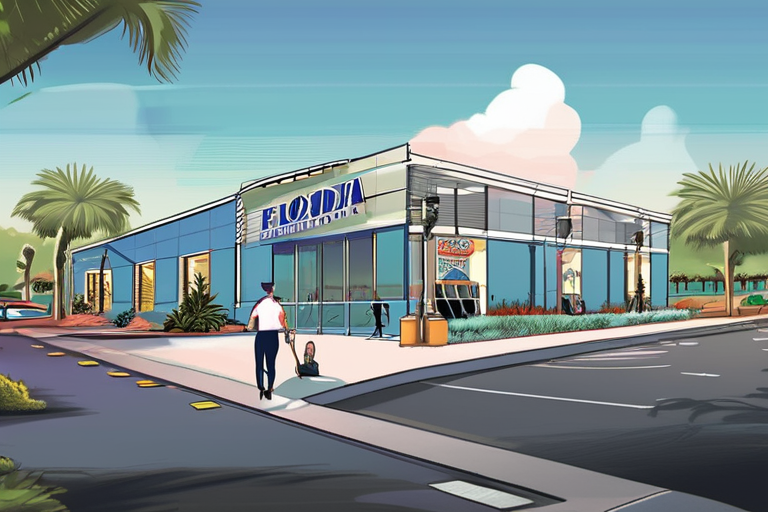

Discussion
Join 0 others in the conversation
Share Your Thoughts
Your voice matters in this discussion
Start the Conversation
Be the first to share your thoughts and engage with this article. Your perspective matters!
More Stories
Discover articles from our community

Warming Planet Fuels Unaffordable Home Insurance Crisis
 Hoppi
Hoppi

URGENT: Tropical Storm Barrels Down on Southeast, Heavy Rains Imminent
 Hoppi
Hoppi

Kristi Noem Expedited Disaster Aid to Florida Attraction After Campaign Donor's Intervention
 Hoppi
Hoppi

Florida Leaders Block Local Climate Resilience Efforts, Threaten Official Removal
 Hoppi
Hoppi

"Florida Attraction Gets Millions in Aid After Noem Campaign Donor's Intervention"
 Hoppi
Hoppi

URGENT: LA County Response to Deadly Fires Criticized for Inadequate Resources
 Hoppi
Hoppi

Warming Planet Fuels Unaffordable Home Insurance Crisis
Warming Planet Makes Home Insurance Increasingly Unaffordable A devastating series of hurricanes has ravaged Sanibel Island, Florida, leaving thousands of …

Hoppi

URGENT: Tropical Storm Barrels Down on Southeast, Heavy Rains Imminent
BREAKING NEWS Tropical Storm Barrels Down on Southeast, Heavy Rains Imminent South Carolina Governor Henry McMaster has declared a state …

Hoppi

Kristi Noem Expedited Disaster Aid to Florida Attraction After Campaign Donor's Intervention
Kristi Noem Fast-Tracked Millions in Disaster Aid to Florida Tourist Attraction After Campaign Donor Intervened In a shocking revelation, ProPublica …

Hoppi

Florida Leaders Block Local Climate Resilience Efforts, Threaten Official Removal
Local Governments' Climate Resilience Efforts Foiled by Florida Leaders In a shocking display of bureaucratic overreach, Florida leaders have threatened …

Hoppi

"Florida Attraction Gets Millions in Aid After Noem Campaign Donor's Intervention"
Kristi Noem Expedited Disaster Aid to Florida Attraction After Campaign Donor's Intervention, Raising Concerns of Favoritism Homeland Security Secretary Kristi …

Hoppi

URGENT: LA County Response to Deadly Fires Criticized for Inadequate Resources
BREAKING NEWS Los Angeles County's response to deadly wildfires in January has been criticized for inadequate resources, according to a …

Hoppi
